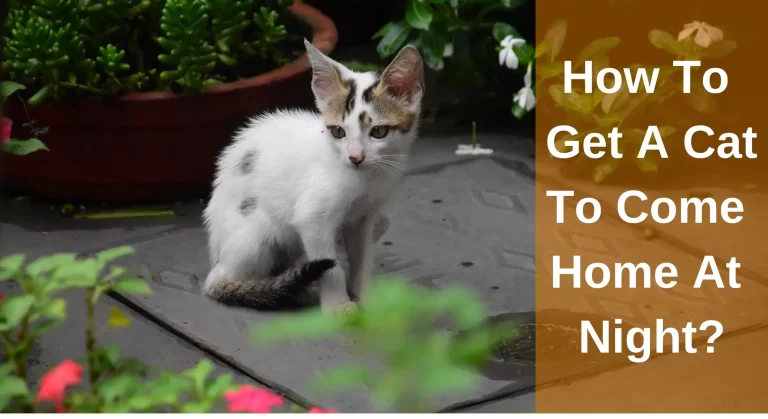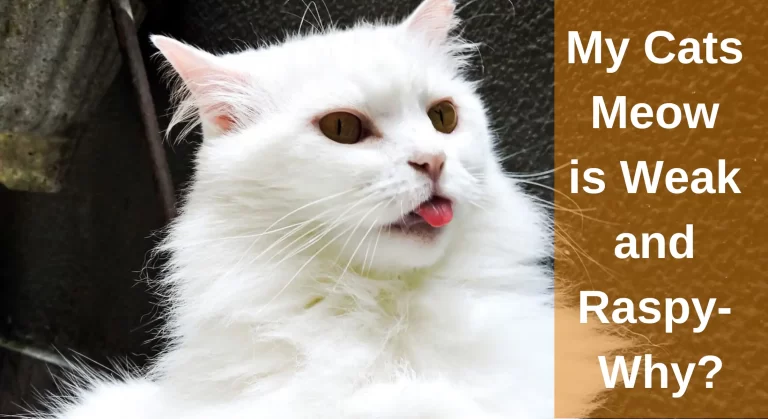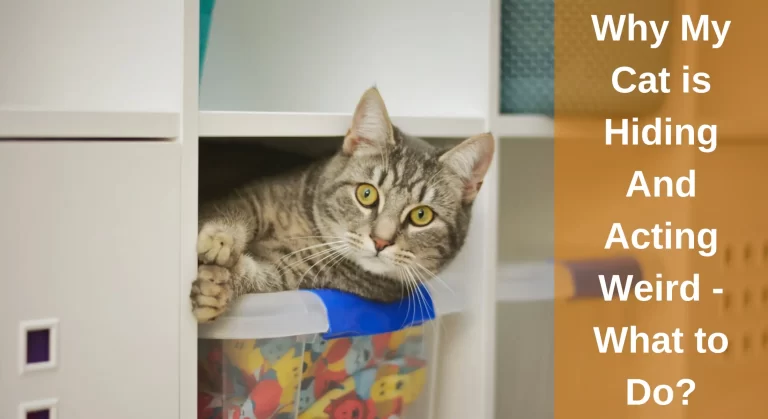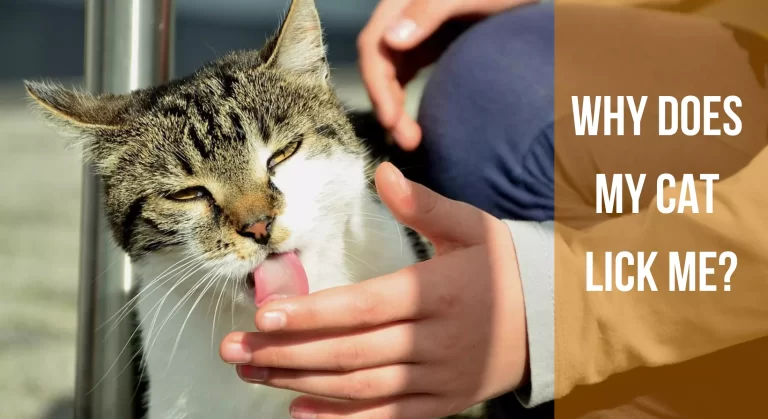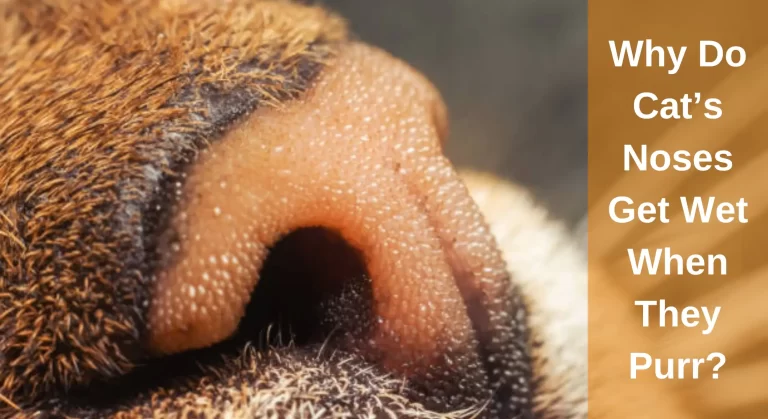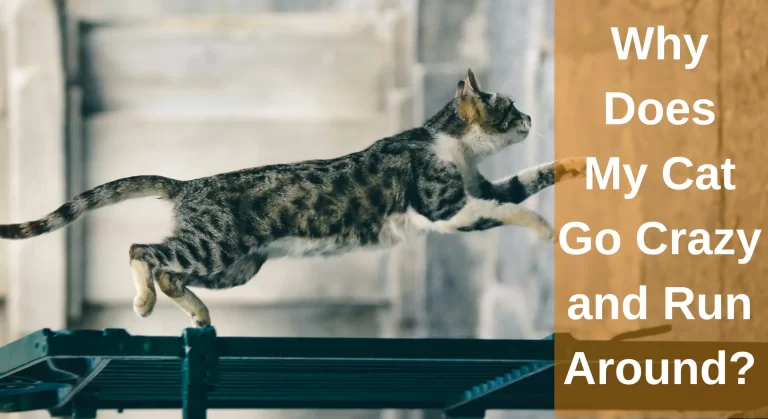Why Is My Cat Sleeping Face Down – Should I be Worried?
Usually, there is nothing to worry about if your cat is resting face down. They frequently get a restful night’s sleep because of this comfortable position. It’s also ideal for catnaps throughout the day because their erect ears can easily pick up all the noises going on around them. Or, they could be too exhausted to adopt a more comfortable posture. Here are some of the most suitable explanations for why my kitty’s friend’s face lay down while sleeping.
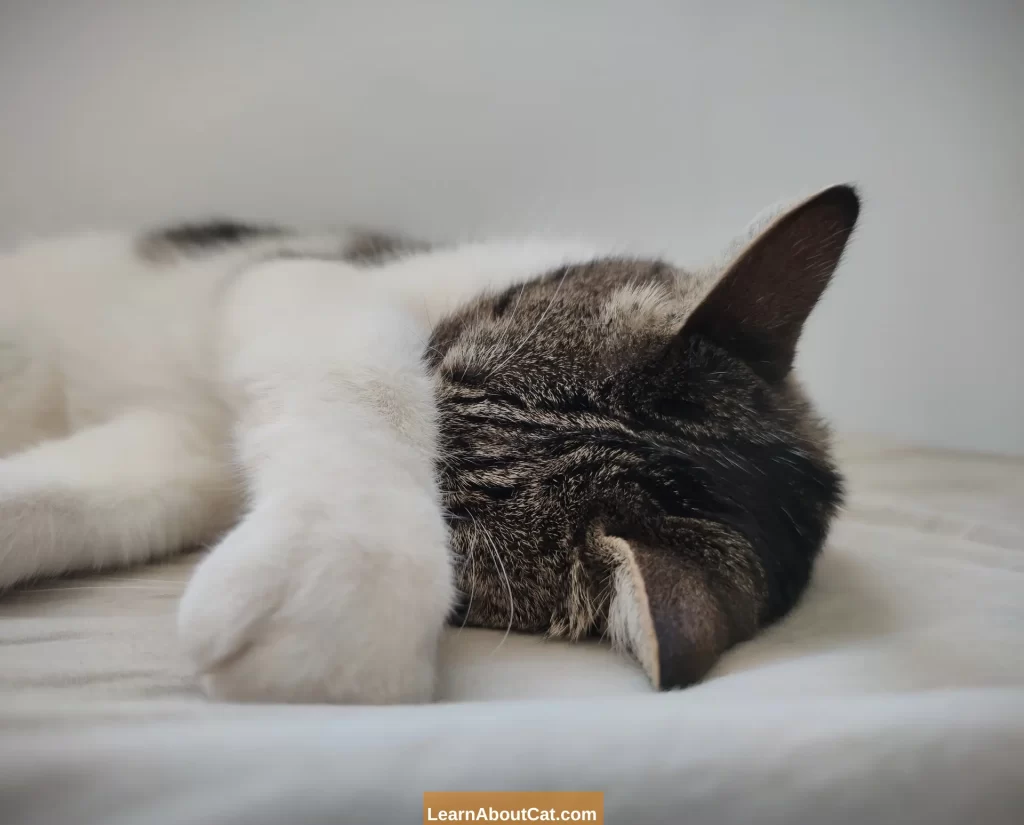
Reasons Why Do Cats Sleep With Their Face Down
1. To Block Light
If your cat is resting face down on a hot summer day, you can very much guarantee that they aren’t attempting to warm up their nose. To block off the light and make it easier for them to go asleep at night, they may cover their face with their paws or a cushion.
2. They Feel Comfortable
Your cat could just prefer to sleep on its face since each of our animal pals has a distinct definition of what is comfortable. In fact, your cat is probably going to feel at ease in whatever sleeping position they decide upon.
3. They Can Hear Better
They typically are only catnapping while being aware of their surroundings. Their ears are at an upright position when they are sleeping face down, which is the greatest position for hearing as many neighbouring stimuli as possible.
4. They’re Exhausted
Some experts suggest that if your cat is dozing face down, they can be exhausted. They are so exhausted that they lack the desire to adopt a cosy position when cuddling. Instead, they just fall to the ground and perform a faceplant while dozing off.
5. They Feel Cold
The most widely recognised explanation for why your cat is sleeping like this is that their little nose feels cold. Given that their blood is a little bit warmer than that of humans, cats naturally like to cuddle up in rooms that are warmer in your house.
Once more, warmth is the cause of this; they get into your face while you sleep, and your body heat keeps them warm and cosy. Because they are one of its extremities, a cat’s nose and the tips of its ears regularly experience the cold.
What Exactly is Cat Head Pressing?
When your cat repeatedly and purposefully forces its head against a hard surface, generally a wall or a door, this is known as head pushing. Cats will adopt this position when awake and cognizant, but it is their preferred sleeping position. This behaviour suggests a number of serious health conditions, including:
Stroke or vascular illness of the brain, water on the brain and cerebral tumours.
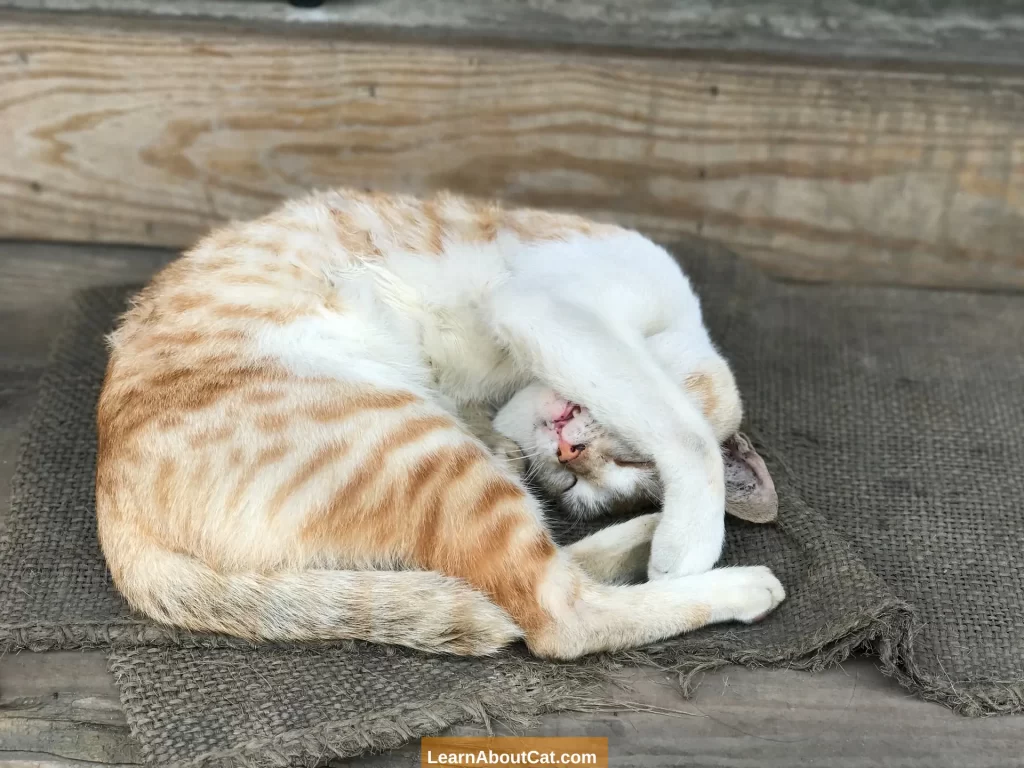
Head Pressing Versus Sleeping Face Down
Fortunately, it is easy to tell the difference between a cat that is head pushing and one that is sleeping face down. Here are a few techniques for spotting the differences:
Are you relaxed or tensed up? A cat’s entire body will be hard and stiff when they push its head because they are in such agonising pain. On the other hand, a cat that is face down will seem comfortable, cosy, and calm.
Sleeping or waking? Cats who are face down when sleeping are clearly sleepy; a cat that is awake is quite unlikely to be lying on its face. While it is possible for cats to sleep with their heads pressed together, you will likely observe this behaviour more often while your cat is awake.
What exactly is it( hard or Soft Object)? Any cat that is head-pushing will be doing it against a wall, a doorway, or another solid object like a hardwood floor. On a cushy and cosy surface, though, is where a cat will typically be seen napping with its head down.
Other Signs: You may also see other neurological signs in your cat, such as frequent pacing or eyesight problems if it is head pressing. The power with which cats crush their own heads may potentially cause facial injuries. On the other hand, you shouldn’t anticipate any more symptoms if your cat is sleeping face down.
When Should You be Worried about a Cat’s Head Pressing When it Sleeps?
Consult your veterinarian if you think your cat’s head pressing or sleeping patterns are odd. Depending on your pet’s condition, your veterinarian may recommend the following queries and examinations:
- If possible, record a video of your cat demonstrating the strange behaviour.
- Watch out for any odd behaviours in your pet, such as vomiting, weakness, or loss of appetite. Watch the size of the urinations for indications of an increase or decrease in urine output, and inspect the bowel movement form in the litter box for any abnormalities.
- Any chemical, or poison that your pet may have licked or swallowed should be looked for in your house. If you believe your pet may have gotten into the container or packaging, save it so your veterinarian may inspect it.
- You should carefully review your cat’s history of vaccinations, recent feline leukaemia or feline aids tests, poisons they may have recently been exposed to, trauma history, medication list, surgical history, obsessive behaviours, lumps or tumours.
- Your veterinarian will likely check every body system, paying special attention to the brain and neurological system.
- To check for any indications of fever, unusually high or low heart rates, or other anomalies, the patient’s heart rate and breathing rate should be recorded.
- Blinking reflexes, head and neck movements, coordination, posture, gait, reflexes, and seizure activity are all examples of responses to light.
- They may brush against your leg and put their heads against it to designate you as their territory and show their affection. Some cats may rub their heads on yours or even touch your forehead when you pet them.
What Sleeping Positions Do Regular Cats Take?
Each cat has a somewhat different sleeping position from the others. Cats frequently lie on their backs on the floor in the middle of the room, spread out on the back of the couch, or curled into a position that resembles a head-pressing position. Some cats may put their paws over their eyes to block off light as they sleep.
Most cats love to sleep curled up in a ball, chins resting on chests, and tails gracefully tucked along the length of their bodies next to them.
To retain their body heat, they are in this posture. Cats will also tuck their faces between their paws or cover their faces as a way to save heat and prevent heat loss. Several of these postures mimic the head pressure felines experience when sleeping for comfort and relaxation.
When Do Cats Sleep And When Do They Wake Up?
Cats are said to be crepuscular creatures since they are most active at dusk and morning. This is true since their prey is most active around dusk. Because of this, cats sleep in the interim. Despite the fact that your pet may live indoors and be domesticated, cats still have a predatory nature. Pet owners will comprehend this because their cats occasionally knock things over or pounce while their parents are attempting to sleep in the early morning.
What To Do if Your Cat Rubs His Head Against Something?
If you feel your cat is doing more than just lying face down, you should see a veterinarian immediately once. Head pounding should never be ignored because it might signify a number of significant medical problems.
Your veterinarian will examine your cat during the consultation to identify what is causing this behaviour. Any other symptoms you observe should be noted and communicated to your veterinarian in order to aid in the diagnosis.
Frequently Asked Questions
The Bottom Line on Why Is My Cat Sleeping Face Down
Do not be worried if you acquire a cat or kitten who loves to sleep on its face. For these utterly bizarre species, this behaviour comes extremely naturally. However, watch carefully for any head-pressing behaviours. Other odd behaviours, such as excessive vocalisation, seizures, abnormal pacing or wandering, blindness, unprovoked and sudden aggression, jaundice, or yellowing of the skin, eyes, and mucous membranes, are occasionally present in conjunction with them. Has your cat’s health been checked by a vet to ensure it is in good hands?
Who is Isabella?
My name is Isabella, and I am a dedicated and knowledgeable cat enthusiast. With years of experience caring for cats and a deep love for felines, I made a mission to help other cat lovers navigate the challenges of cat ownership.

